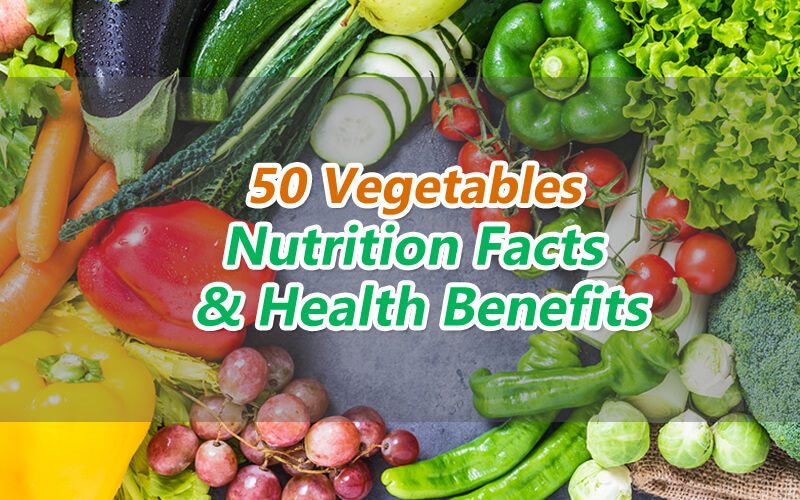Various Vegetables Nutrition Facts and Health Benefits
A vegetable is essentially any edible part of the plant—leaves, roots or tubers, and stalks—except the fruit.
Vegetables can be eaten either raw or cooked and play an important role in human nutrition. The Dietary Guidelines for Americans advise us to eat a wide variety of vegetables and fruits every day because the nutrient content varies considerably from one to another. Many nutritionists encourage people to consume plenty of fruit and vegetables, with five or more portions a day often being recommended.

So what are the nutrients in vegetables?
Most vegetables are low in fat and calories but high in vitamins, minerals, dietary fiber, and trace elements. All the vegetables contain calcium, magnesium, potassium, iron, beta-carotene, vitamin B complex, and vitamin K. Particularly important are the antioxidant vitamins A, C, and E. The nutritional content of vegetables varies considerably, they contain useful amounts of protein and varying proportions of vitamins and minerals.
Many starchy vegetables occupy a middle ground between fruits and vegetables, acting as both a carbohydrate and a significant source of vitamins, minerals, antioxidants, and sometimes protein. Most starchy vegetables release their energy relatively slowly, so that they maintain more stable blood sugar levels than some of the sweeter fruits. They tend to be high in fiber and, in some meals, can take the place of a grain even while providing a wider range of nutrients.
What are the health benefits of vegetables?
When vegetables are included in the diet, there is found to be a reduction in the incidence of cancer, stroke, cardiovascular disease, and other chronic ailments. According to research, those who consume more than five servings of fruits and vegetables per day have a 20% lower risk of developing coronary heart disease or stroke than those who consume less than three servings.
Vegetables are home to many antioxidants. These compounds help protect the human body from oxidative stress, diseases, and cancer, as well as help the body develop the ability to fight these by boosting immunity.
Additionally, vegetables are packed with soluble as well as insoluble dietary fiber. These substances absorb excess water in the colon, retain a good amount of moisture in the fecal matter, and help its smooth passage out of the body. Thus, sufficient fiber offers protection from conditions like chronic constipation, hemorrhoids, colon cancer, irritable bowel syndrome, and rectal fissures.
Vegetables contain powerful phytonutrients that have been found to prevent disease, reduce inflammation, and give you the necessary nutrients for your various bodily systems to function optimally. This is why dietary guidelines recommend the consumption of fruits and vegetables daily.
To assist you in menu planning, we have provided a list of vegetables with their nutrition facts and health benefits. (The tables of nutrient values are based on the USDA.)